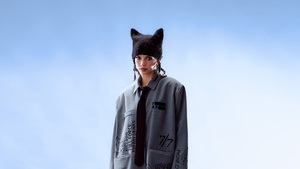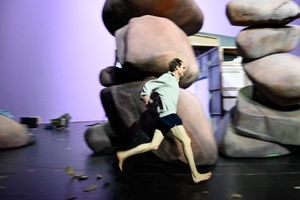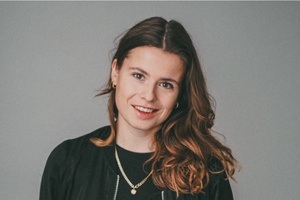PHOTO:
© Foto © 2012, Leo Seidel
Rigoletto
In the organizer's words:
In his opera about the hunchbacked court jester, Verdi took the tension between the improbabilities of the plot and the emotional overwhelming power of musical theater to extremes. Jan Bosse's production tells the tragedy of a man who fails to separate private life and public action ... Conductor: Sesto Quatrini; Director: Jan Bosse; With Andrei Danilov, Roman Burdenko, Julia Muzychenko / Aigul Kishmatullina, Patrick Guetti, Annika Schlicht and others."In terms of theatrical effect, RIGOLETTO seems to me the best subject I have set to music so far [...]. There are situations there of great power, variety, temperament, pathos." (Verdi to Antonio Somma, April 22, 1853)
In describing the qualities of his melodramma based on Victor Hugo's successful play "Le roi s'amuse", which premiered in 1851, Verdi at the same time names the challenges that every production of this opera must face: RIGOLETTO is a masterpiece whose peculiarity lies in the confrontation of psychological character drawing with the improbabilities of a fantastic plot. This story sounds like a romantic horror novel: as a jester in the service of the Duke of Mantua, the misshapen Rigoletto has become the object of hatred of all courtiers. He indiscriminately mocks all those whom his master - a notorious womanizer - has reduced to misery. But at the same time, he is afraid that his daughter Gilda could face a similar fate and therefore keeps her hidden. But Rigoletto must experience that his attempt to preserve his private ideal world in the midst of an environment dominated by arbitrariness and violence is doomed to failure: Gilda, too, is seduced by the Duke and even goes to her death for him.
The story gains its emotional credibility through Verdi's music. Through it, RIGOLETTO becomes a tragedy resulting from the clash of three completely different people: The Duke, who is on the one hand a libertine, but to whom Verdi wrote such seductive music that not only Gilda but also the audience regularly succumbs to his charms; Rigoletto, who is one of those typical Verdi people who harbor the capacity for both good and evil; and finally Gilda, who embodies in radiant purity the principles of innocence and compassion. In RIGOLETTO one believes above all in these people and through them understands even the most absurd coincidences of the opera plot as inescapable fate.
Jan Bosse was also interested in this play with the effects of musical theater in his first opera work in Berlin. His RIGOLETTO is set in the auditorium of an opera house, and as in his previous opera productions, Monteverdi's L'ORFEO and Cavalli's LA CALISTO, the boundary between audience and stage is dissolved. This content has been machine translated.






